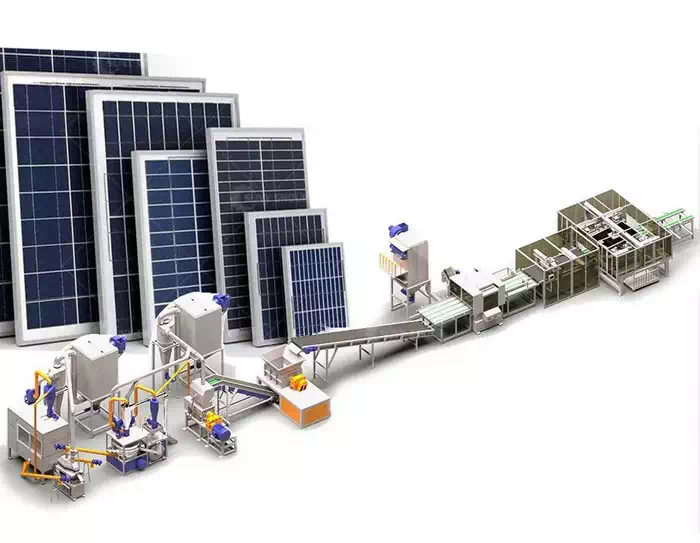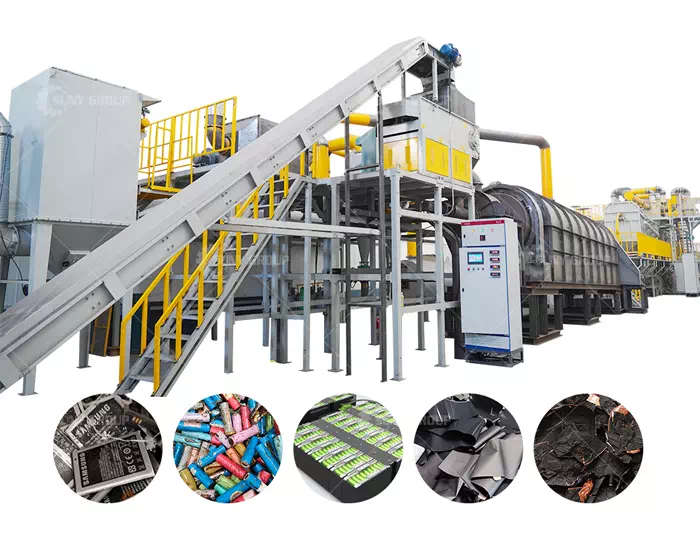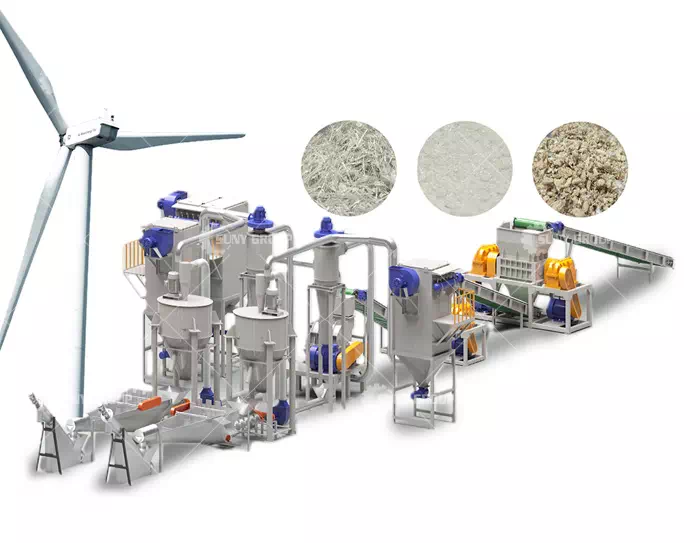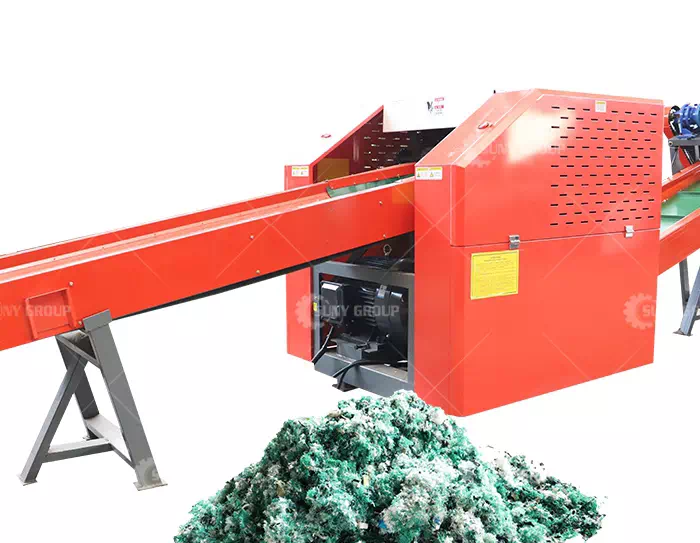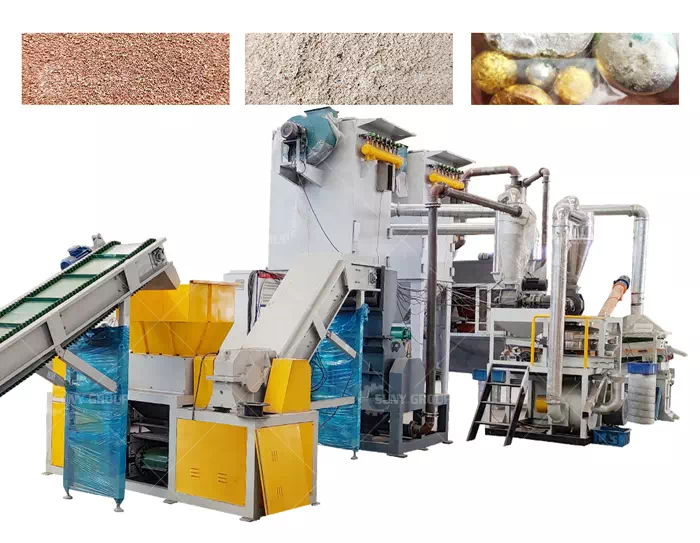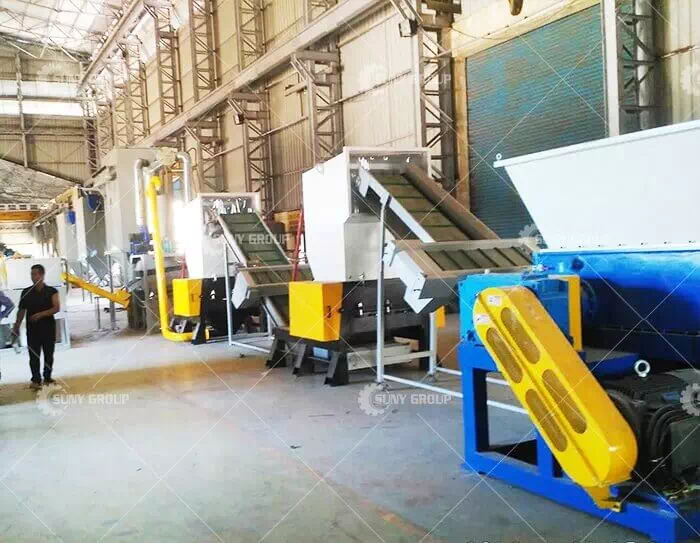Lithium-ion Battery Recycling Machines and Guide to Doing Business
With the rapid development of lithium-ion batteries, the demand for the batteries and their applications in various industries continues to grow, especially in different types of vehicles. To meet the demand for lithium-ion batteries while minimizing emissions that have an impact on the climate, reusing, recycling, and reuse of lithium-ion is a critical step toward a sustainable battery economy.
When you are thinking of investing in or purchasing a lithium-ion battery recycling business or machine, you must have a thorough understanding that will enable you to make the best choice. Whether you are looking to purchase a small or large system, we have some guidelines for you. We will cover 7 guides in this article about lithium-ion battery recycling equipment and 6 guides to start your business.
1. Demand for lithium-ion battery recycling machines has grown significantly
Due to the rapid growth of lithium-ion batteries and the sudden rise in market demand, a large number of waste batteries have been generated. Recycling these wastes in an environmentally friendly, economical, and efficient way will not only eliminate the risks they pose to the environment and public health but also provide raw materials for the manufacturing of lithium-ion batteries, which will further promote the development of lithium-ion batteries. Reducing Resource Use.
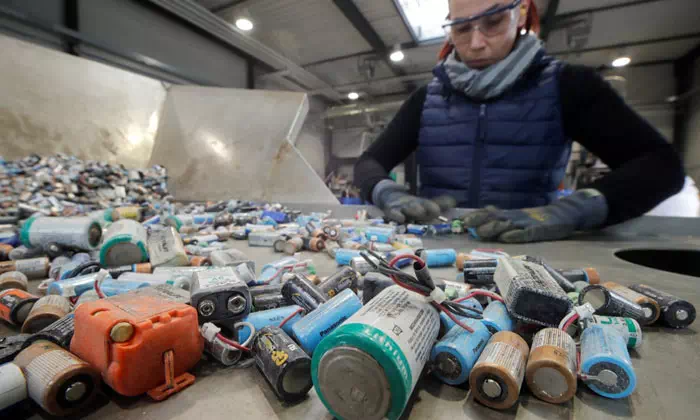
2. Challenges of recycling used lithium-ion batteries
Lithium-ion batteries contain metals such as nickel, cobalt, manganese, and lithium, as well as electrolytes and organic solutions. Improper disposal will not only cause significant harm to the environment but also result in a great waste of resources. Due to the chemical reaction within the battery and the rise in ambient temperature, thermal runaway can easily lead to combustion, fire, explosion, and other safety hazards. It will produce fluorine, organic matter, heavy metals, and other pollution of the environment and the human body. Another problem is that lithium batteries have different compositions and the percentage of composition varies greatly. It is more challenging to directly recover high-value-added materials such as positive and negative electrode materials.
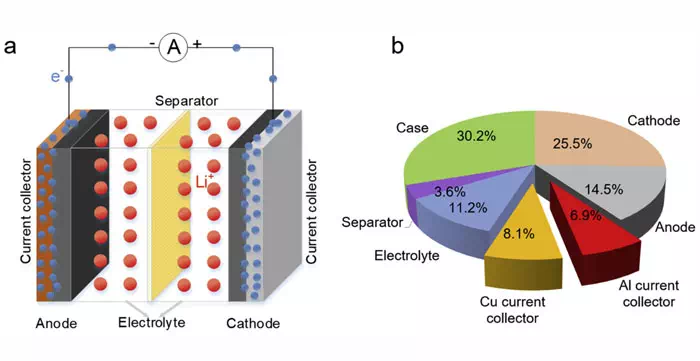
3. Recyclability of used lithium-ion batteries
The disposal process of waste lithium-ion batteries is relatively complex, requiring the in-depth study of the disposal process and special equipment configuration under specific process conditions to make the complete set of equipment greener. SUNY GROUP has created a complete set of waste lithium-ion battery disposal process programs and a complete set of waste lithium-ion battery crushing and sorting equipment. Nearly 95% of the valuable components in waste lithium-ion batteries can be recovered using our programs and equipment. These include separating the casing, copper, aluminum, carbon black, and more.

We have been working with WEEE recyclers around the world to provide them with lithium-ion battery crushing and separation equipment with innovative designs for efficient and successful lithium-ion battery recycling. We utilize state-of-the-art facilities equipped with new technologies and research processes. We work with WEEE recyclers around the world to provide them with a full range of used lithium-ion battery crushing and separation equipment with special processes and new designs to efficiently and sustainably process used lithium-ion battery waste.
4. Lithium-ion battery recycling facility equipment
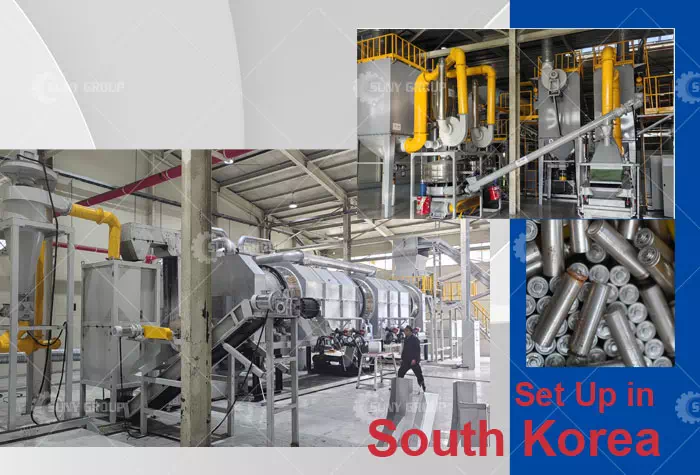
Lithium battery recycling machine
Shredder: This system is used to tear large pieces of used lithium batteries or some modules into small pieces for further processing by subsequent equipment.
Shredder: This machine crushes old batteries into smaller pieces to make them easier to transport.
Pyrolysis System: This technology is used to remove diaphragms, electrolytes, organic materials, and other contaminants.
Separator: This machine separates the various materials in old batteries, such as copper.
Sorting system: The sorting system simultaneously separates the copper-aluminum mixture, the black powder, and the black powder on the separated copper-aluminum mixture.
Tail gas treatment system: Pyrolysis tail gas is treated to meet environmental standards and then discharged.
5. Innovative lithium-ion battery recycling design
The new waste lithium-ion battery crushing and sorting system adopts the dry processing method of waste ion batteries. The whole process includes high-efficiency vapor extraction, controlled power generation with crushing, controlled oxygen pyrolysis, sorting, exhaust gas treatment, and other environmental protection links.
Are you looking for a high-quality lithium-ion battery recycling machine? Here are the premium features:
SUNY GROUP waste lithium-ion battery crushing and sorting equipment adopts an innovative design, no need to discharge lithium batteries before crushing, and the whole crushing process is safe and stable, eliminating the possibility of explosion and combustion. The proliferation of harmful gases. Make the whole crushing process safe, effective, and economical. It can dispose of all the above types of batteries at one time. Including cylindrical, square, soft pack, hard shell, and so on. Ternary batteries include lithium iron phosphate, lithium cobaltate, lithium manganate, and so on.
6. New development focus of lithium-ion battery recycling business
The lithium-ion battery recycling business is profitable because many companies have started using this type of battery in their products. It is also a very successful business strategy as the demand for lithium-ion batteries is increasing and is expected to increase even more in the coming years.
Lithium batteries are widely used in electric vehicles and electronic devices. Global demand for lithium batteries has grown significantly in recent years. However, lithium batteries are causing increasing damage to the environment. As a result, there is a need to recycle and reuse these old lithium batteries, which has become a new area of development for many factories.
Recommend products
CONTACT US:
If you have any requirement or suggestion, please fill in the form and send to us, thanks!E-mail:sunymachine@gmail.com | Whatsapp:+8613674945231


